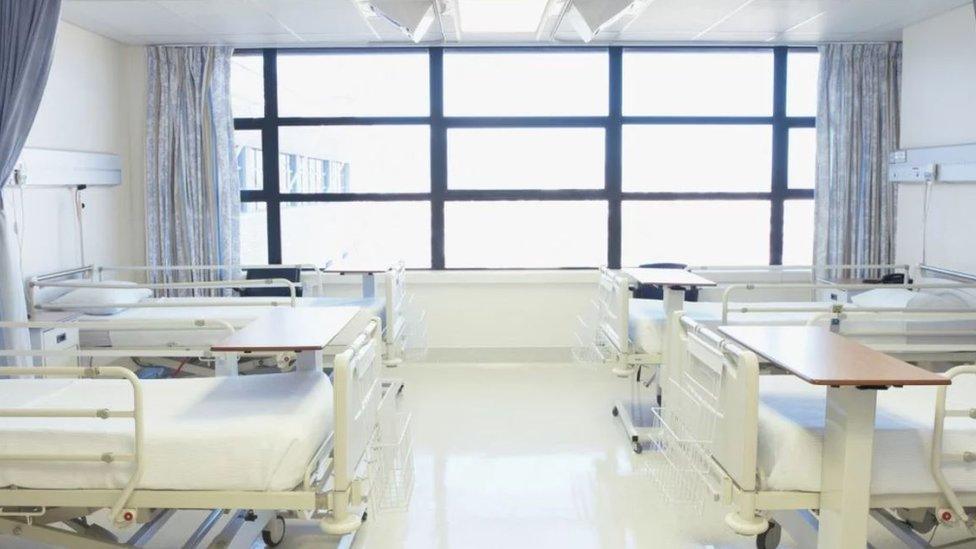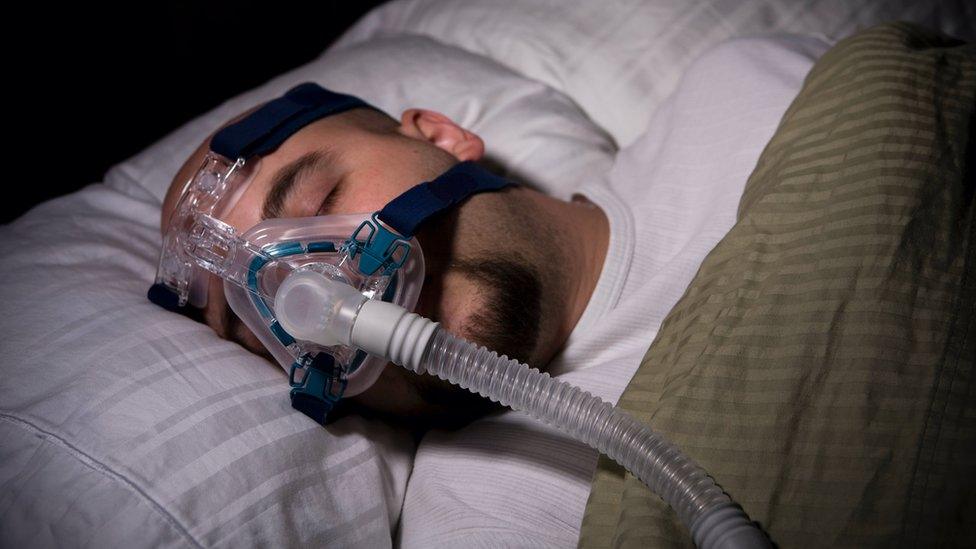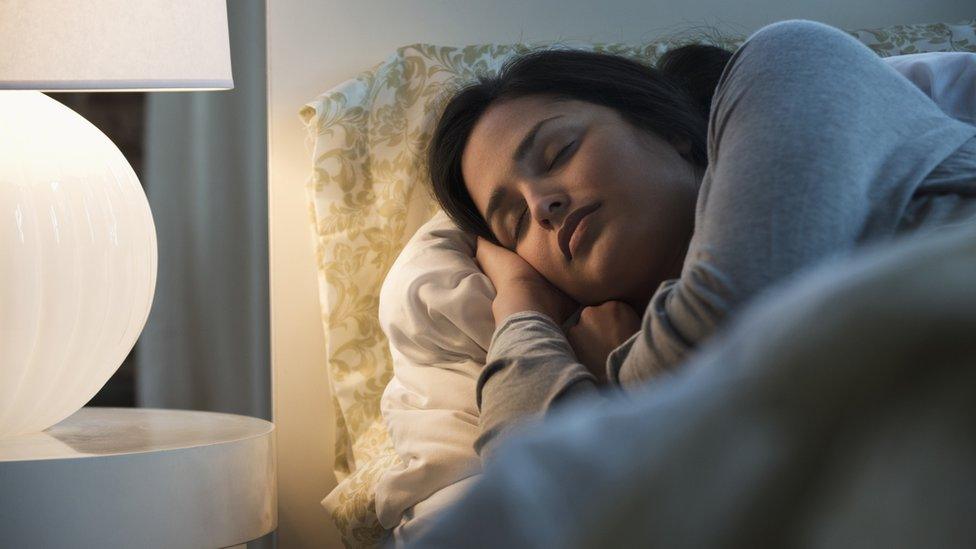Hospital bed location can determine sleep quality - study
- Published

Researchers say fluctuating ward noise levels negatively impact on patient sleep
Hospital patients with beds near windows sleep better than those in other parts of a ward, according to a new study.
Researchers based in Guildford, Surrey, and Italy found fluctuating noise levels also negatively impacted the quality of sleep.
The experts studied how hospitalisation affected body rhythms.
Sara Montagnese, from the University of Surrey, said "disturbed sleep could affect a patient's prognosis".
A total of 50 inpatients were recruited for the study and underwent a full sleep-wake evaluation.
They also completed a daily sleep diary and wore an activity monitor for the duration of their hospitalisation.
Environmental factors such as room type, bed position, light and noise were all recorded.
Professor Montagnese said: "Hospitalisation weakens the sleep-wake cycle."
'Regulating body rhythms'
This can be due to illness or being in an unusual and noisy environment with disordered light, food and activity regimes.
"As a result, patients tend to experience a poor night's sleep, with multiple night awakenings and daytime sleepiness," she said.
Professor Montagnese said light played an important part in regulating body rhythms.
She said: "The overabundance of it in hospital settings in the evening may make it more difficult for a person to fall asleep, and the lack of it in the morning may lead to a patient's rhythm becoming delayed or weak.
"What we have shown is that increasing and decreasing light exposure at the beginning and at the end of the day, respectively, can help."

Follow BBC South East on Facebook, external, on X, external, and on Instagram, external. Send your story ideas to southeasttoday@bbc.co.uk, external.
Related topics
- Published4 January 2024

- Published21 August 2023

- Published2 August 2023
